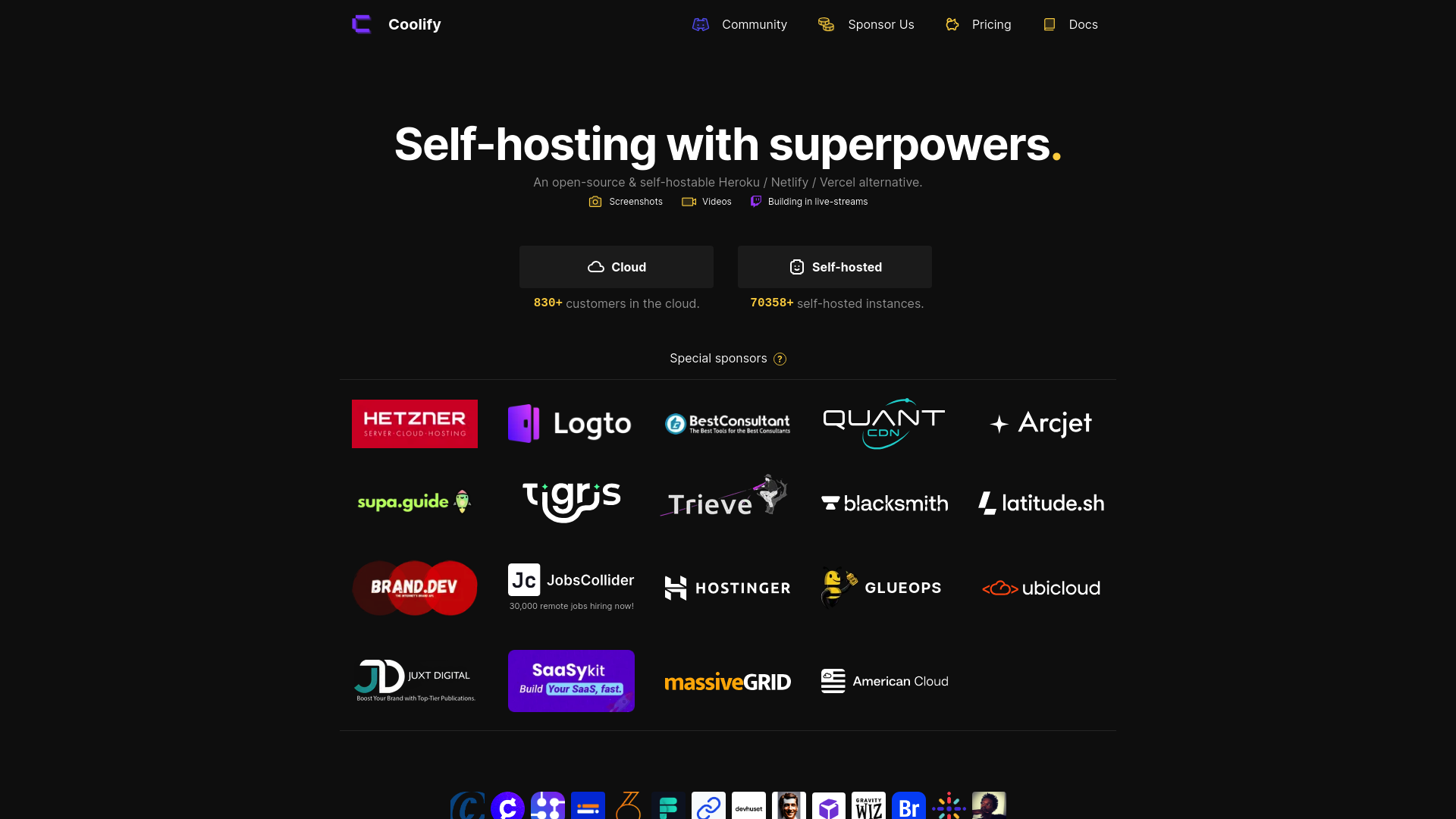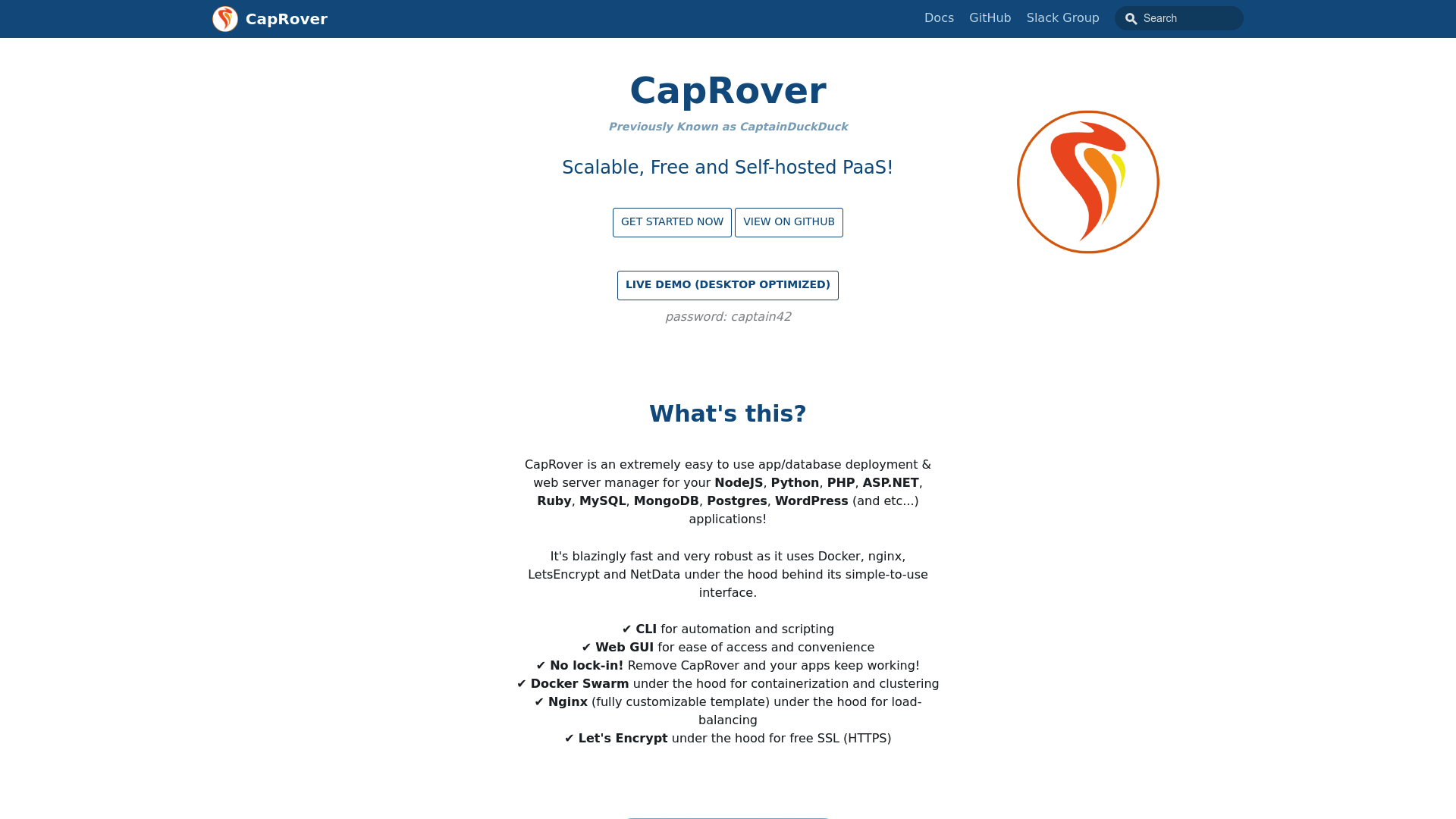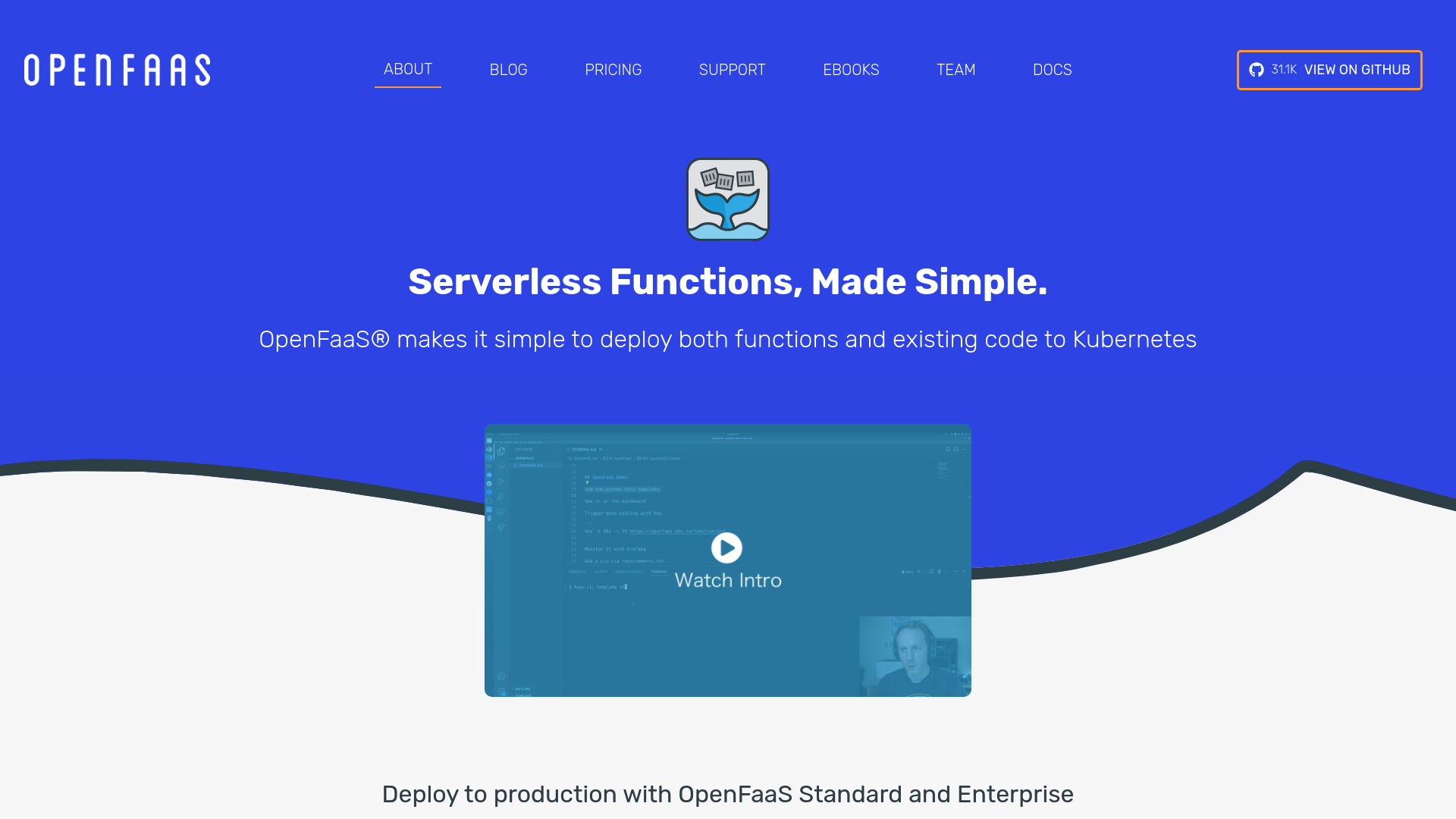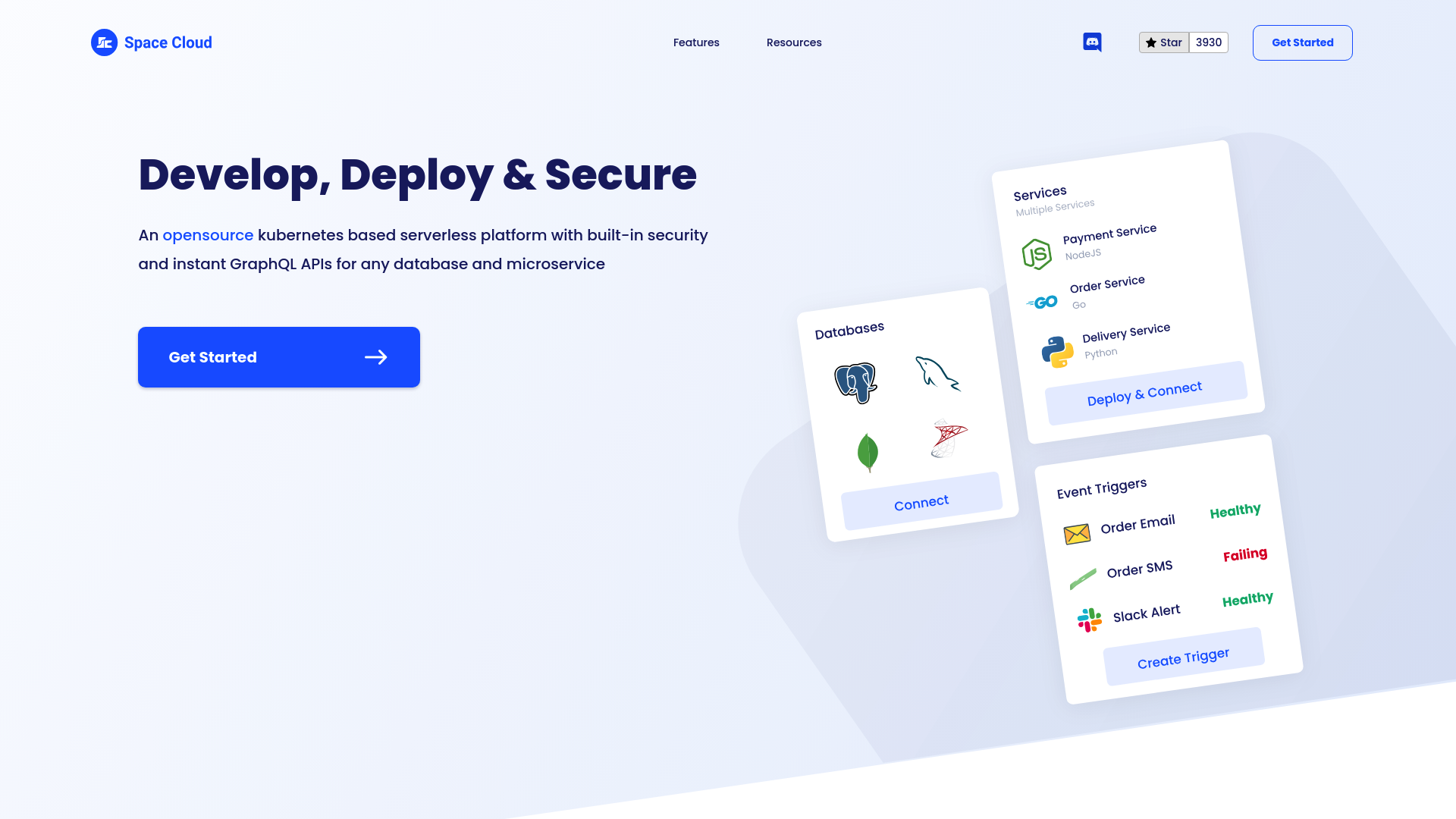5 Open Source Alternatives To Heroku
The best Deployment, and Platform as a service tools similar to Heroku
Coolify stands out as a leading open-source alternative to Heroku. For those seeking different features or workflows, we've curated a comprehensive list of Heroku alternatives, each offering unique strengths.
Notable mentions in the Heroku alternative space include: Dokku, Caprover, OpenFaas, Space Cloud.
The Heroku ecosystem primarily consists of Deployment solutions, with additional options in Platform as a service. Explore these alternatives to discover tools that align with your specific Heroku-related requirements, whether you're looking for enhanced features, different user experiences, or specialized functionalities.

Coolify is an open-source and self-hostable alternative to platforms like Heroku, Netlify, and Vercel. It allows you to deploy and manage your applications seamlessly across various environments, giving you the freedom and control to host on your own terms. Compatible with a wide range of programming languages and frameworks, Coolify makes it easy to launch static websites, APIs, backends, databases, services, and more. You can deploy resources to any server with an SSH connection, including your own servers, VPS, Raspberry Pi, EC2, DigitalOcean, Linode, Hetzner, and more. Coolify also supports deployment to multiple servers or Docker Swarm clusters, with Kubernetes support on the way. Git integration is built-in, supporting both hosted and self-hosted platforms like GitHub, GitLab, Bitbucket, and Gitea. Coolify automates the setup and renewal of Let's Encrypt SSL certificates for your custom domains. All settings are saved on your own servers, ensuring you have complete control over your data. Your data is automatically backed up to any S3-compatible solution, allowing for easy restoration if needed. You can integrate Coolify into your CI/CD pipelines using tools like GitHub Actions, GitLab CI, and Bitbucket Pipelines. The robust API enables automation of deployments, management of resources, and integration with existing tools. Team collaboration is made easy with project sharing, permission control, and role management. Coolify automates numerous tasks once your server is connected, letting you focus on your code. It monitors deployments, servers, disk usage, and more, notifying you of any issues through your chosen channels like Discord, Telegram, or email.
This open source project is a Docker-powered Platform as a Service (PaaS) that helps you build and manage the lifecycle of applications. It leverages container technology to streamline the deployment, scaling, and operation of applications, providing an efficient and consistent environment for developers and operations teams alike.
- Docker Integration: Seamlessly integrates with Docker to manage containerized applications.
- Lifecycle Management: Provides tools to manage the entire lifecycle of applications from development to production.
- Scalability: Easily scale applications up or down based on demand.
- Automated Deployment: Simplifies the deployment process with automated workflows.
- Resource Optimization: Efficiently allocates resources to ensure optimal application performance.
- Monitoring and Logging: Comprehensive monitoring and logging features to keep track of application health and performance.
By leveraging Docker technology, this PaaS solution provides a robust and flexible environment for developing, deploying, and managing applications, making it easier for teams to focus on building great software.

CapRover is a powerful, self-hosted Platform as a Service (PaaS) that simplifies app and database deployment. It supports a wide range of applications including NodeJS, Python, PHP, ASP.NET, Ruby, MySQL, MongoDB, Postgres, and WordPress. CapRover leverages Docker, nginx, Let's Encrypt, and NetData to provide a robust and user-friendly experience.
- CLI for automation: Automate and script your deployments effortlessly.
- Web GUI: Access and manage your deployments through a convenient web interface.
- No lock-in: Remove CapRover anytime, and your apps will continue running.
- Docker Swarm: Utilizes Docker Swarm for containerization and clustering.
- Customizable Nginx: Fully customizable nginx templates for load-balancing.
- Free SSL: Get free SSL certificates with Let's Encrypt.
- One-Click Apps: Deploy MongoDB, MySQL, WordPress, and more in seconds.
- Easy Deploy: Multiple deployment methods including dashboard upload, CLI, and webhooks.
- Simple Interface: Manage Docker operations like exposing ports, setting persistent directories, and more.
- Cluster Ready: Easily attach nodes and create a cluster with automatic load balancing.
CapRover is designed for developers who want to focus on writing code rather than managing servers. Whether you're looking to reduce costs compared to services like Heroku or enjoy the power of Docker and nginx without the complexity, CapRover has you covered. Deploy apps in any language and secure them with HTTPS, all while increasing your productivity.

OpenFaaS makes it simple to deploy both functions and existing code to Kubernetes. It allows you to run your code anywhere with a unified experience, whether on-premises or in the cloud, using portable OCI images.
- Anywhere: Deploy your functions on-premises or in the cloud, with portable OCI images.
- Any code: Write functions in any language, and bring your existing microservices along too.
- Any scale: Pro features scale your functions to meet demand, and down to zero when idle.
- Efficient scaling: Your functions can be fine-tuned to scale to match the type of traffic they receive, including to zero to save on costs.
- Event-driven workloads: Invoke functions through events from Apache Kafka, AWS SQS, Postgresql, Cron, and MQTT.
- Multi-tenancy: Supported through Kubernetes network policies, resource limits, runtime classes, read-only filesystems, and dedicated namespaces per tenant.
- Batch jobs and ML models: Deploy and scale batch jobs and machine learning models as functions, even for long-running tasks.
- Language support: Functions can be written in any language and are built into portable Open Container Initiative (OCI) images with tooling like Docker & Buildkit.
OpenFaaS enriches Kubernetes with scaling, queueing, monitoring, and event triggers, so your team can focus on shipping features. It is trusted in production by companies like Waylay, Patchworks, LivePerson, and Cognite for various use cases including custom functions for industrial IoT, customer extensions for e-commerce, and custom ML/data-science functions.

Space Cloud is an open-source Kubernetes-based serverless platform designed to streamline the development, deployment, and security of modern cloud applications. It provides instant GraphQL APIs for any database and microservice, ensuring developers can focus on business logic rather than infrastructure management.
- Ready Framework: Adheres to best practices of modern cloud app development.
- Cross Database Joins: Use GraphQL to join data across multiple databases.
- REST Support: GraphQL wrapper for function as a service on REST APIs.
- Storage: Native support for storage systems like local storage and S3.
- Eventing: Built-in Pub/Sub system for managing asynchronous events.
- 1 Click Deploy: Deploy microservices in any language with one click.
- Service Mesh: Secure, control, and observe microservices using Istio.
- Abstraction: Abstracts Kubernetes and Istio configurations for developers.
- Auto Scaling: Scale less frequently used services to zero.
- Single Point: Single ingress point for all incoming traffic.
- Authorization: Validate authorization rules at the HTTP (L7) layer.
- Policy: Define policies for service-to-service communication using mTLS.
- Future Proof: Easily manage future security policy changes.
Space Cloud brings together app developers and operations teams to achieve quick release cycles, making it easier to manage and scale serverless apps on Kubernetes while ensuring robust security and streamlined operations.
Discover Open Source Alternatives to:
View alltableau
Tableau helps people see, understand, and act on data.
Airtable
Empower teams to create custom apps without coding.
Contentful
NewContentful acquires Ninetailed to boost AI-driven personalization.
Typeform
Customize your cookie settings for tailored content.
Notion
All-in-one workspace with AI integration.
1Password
Empower teams with secure access management.